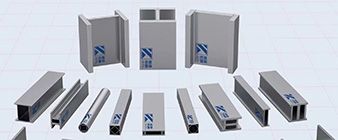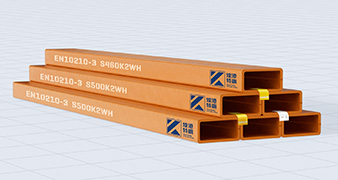Titanium Grade 7 (Ti Gr 7 / 3.7235 / UNS R52400) is an alloy that combines the properties of Titanium Grade 7 with the advantages of palladium to enhance its corrosion resistance, especially in corrosive environments. The following is an overview of its application in structural stations:
Chemical Processing Industry
-Pipeline systems: Pipelines are widely used to transport corrosive chemicals, and their excellent resistance to acid and chloride environments is crucial.
– Pressure Vessels: Used to construct pressure vessels for storing or handling corrosive chemicals to ensure durability and safety.
Marine Applications
– Marine Structures: Due to its corrosion-resistant properties, used for components exposed to seawater and marine environments, such as ship hulls and offshore platforms.
– Subsea equipment: for subsea structures and components, including risers and manifolds, which are often exposed to harsh conditions.
Aerospace Industry
– Aircraft parts: used in aircraft structural parts that require lightweight, high-strength materials with excellent fatigue resistance.
– Spacecraft structures: Suitable for parts in spacecraft that must withstand extreme conditions, including high temperatures and corrosive environments.
Nuclear Power Plant
– Structural Support: Used in containment structures and support frames to provide safety and stability in critical environments.
– Heat exchanger: used in cooling systems due to its resistance to corrosion and ability to handle high temperatures.
1. Corrosion resistance: Excellent resistance to oxidation and corrosion, especially in acidic and chloride environments, making it ideal for chemical processing and marine applications.
2. High strength-to-weight ratio: Significant weight reduction compared to traditional materials, thereby improving performance in a variety of applications.
3. Ductility and formability: Good ductility allows for a variety of manufacturing techniques, including bending and welding, which is critical for structural applications.
4. Temperature resistance: Maintains mechanical properties at high temperatures, suitable for high temperature applications.
5. Biocompatibility: Ideal for medical applications requiring compatibility with human tissue.
Cost: The higher cost of titanium alloys compared to traditional materials such as steel may limit their use in certain applications.
Manufacturing Challenges: Due to its unique properties, specialized cutting, welding and forming techniques and equipment are required.
If you have other questions or need more specific information, please feel free to ask Peak Kong Special Steel!
-
 2024-9-24 310S stainless steel hollow structural Sections
2024-9-24 310S stainless steel hollow structural Sections -
 2024-7-15 Technical delivery conditions for high strength and weather resistant steels
2024-7-15 Technical delivery conditions for high strength and weather resistant steels -
 2024-9-29 Alloy 59 / 2.4605 Nickel-Based Alloy Hollow Structural Profiles
2024-9-29 Alloy 59 / 2.4605 Nickel-Based Alloy Hollow Structural Profiles -
 2024-9-19 1.4410 Stainless Steel Hollow Profiles Application in Water Treatment
2024-9-19 1.4410 Stainless Steel Hollow Profiles Application in Water Treatment -
 2024-9-20 Laser welding fabrication process of Ti Gr 2 / 3.7035
2024-9-20 Laser welding fabrication process of Ti Gr 2 / 3.7035 -
 2024-9-14 304 vs 1.4301 stainless steel structure innovative applications
2024-9-14 304 vs 1.4301 stainless steel structure innovative applications -
 2024-9-19 904L stainless steel hollow profile
2024-9-19 904L stainless steel hollow profile



